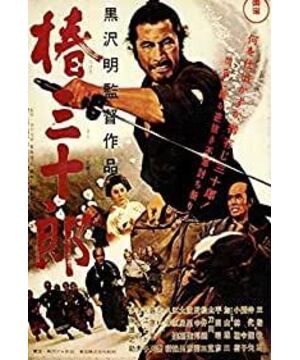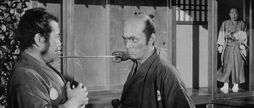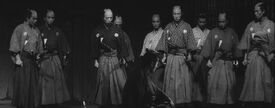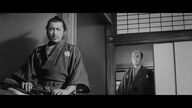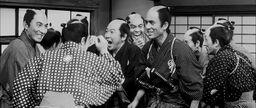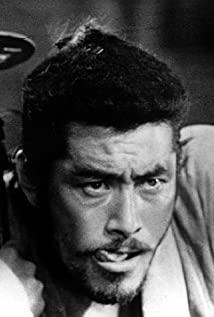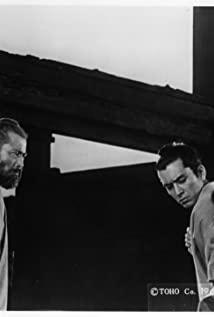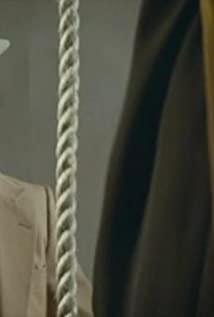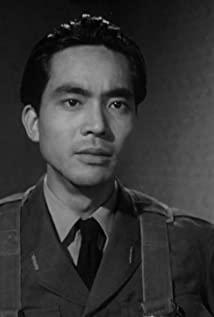"Tsubaki Thirteen Lang" has been reviewed for the second time recently, and there are some opinions, such as being stuck in the throat, not spitting out unpleasantly.
In my opinion, whether it is the bloody violent aesthetics at the end of the film or the philosophical myths caused by the "scabbard knife", they are all just the director's tricks. If the audience talks too much about these appearances, they will It is possible to overlook what is truly worthy of our attention and recollection.
If I were to rank the characters worthy of attention in the film, I think the first one should be Muroto Hanbei, the second is the manager of Mutian, and the third is Tsubaki Juro.
1. Muroto Hanbei, who was born at an untimely time
Muroto was a typical samurai representative in the Edo period. He had the ambition to revive his family's reputation and stand out from the crowd, and he valued the honor of the samurai who was loyal and brave. During the political struggle between Director Mutsuta and Kikui, Kuroto and others, Muroto had been fighting at the front desk, but unfortunately fell into Tsubaki's calculations. Later, Director Mutian was rescued by the 9 samurai, and Muroto led his team to return to find that the situation was over. , he finds Tsubaki Juuro, who intends to leave, and decides to duel with him.
"Don't talk nonsense, draw your sword" - Muroto Hanbei
"I don't want to fight, it's not worth it to draw a sword to kill someone" - Tsubaki Juro
"It's worth it to me, otherwise it won't calm my heart" - Muroto Hanbei
Seeing such a dialogue, we can't help but feel a lot of emotion, and feel both sympathy and helplessness for Muroto. The tragedy of Muroto is that he went with the wrong person. Kikui and others are not wise masters, and it is more that he met the person he shouldn't have met - Tsubaki Sanjirou. Otherwise, he might follow Kikui's ascendant success and thus have a chance to realize his ideals.
Muroto, who was in the middle of the family path, followed the bright master wholeheartedly and stood out. However, the chief of the Shiro family, Mutian, was an incompetent and incompetent. He was instead bought by Kikui, who was an official of Mutian.
The magnanimous Muroto, facing Tsubaki Juro, who was an enemy from the beginning, believes that he is a hero and cherishes him as his own generation. Tsubaki Sanjiro pretended to vote, and he accepted all the orders without distinguishing; Tsubakijiuro picked camellias to send information and was caught by him, and he just tied him up and didn't kill him. Especially in the final duel with Tsubaki Sanjiro, he defended his nobility and honor in a tragic and decisive way.
If the director of Mutian could have a discerning eye and know the pearl, how could he be the pawn of Kikui? If there is no such person as Tsubaki Juro, if Muroto is not so gullible in him, the number of winners and losses is still unknown. Unfortunately, this is all an assumption. In the director's script, characters like Muroto exist to set off a knight like Tsubaki Juro. Muroto has his own ambitions, loyal targets, and even did some "bad things" in tandem with the villains. Compared with Tsubaki Juro, a cynical and unrestrained hero who disdains fame and fortune, Muroto is more real and capable. Resonate with people.
The old days are gone, the heroic spirit is gone. And Muroto Hanbei, this vivid character, allows us to still taste the sweetness of the heroic spirit and honor of the past today.
2. The incompetent Mutian family elder
It is necessary to talk about Mutian. Mutian was the elder of the city's daimyo, the chief of feudal affairs, and a first-class minister. However, what kind of incompetence caused him to be united by his deputy, the supervisor, and a whole group of middle and lower-level samurai to oppose him. If his cousin and nephew accidentally met Tsubaki Juiro and got his help, Mutian The outcome is estimated to be only suicide by cutting the abdomen.
Of course, Mrs. Mutian had great confidence in her husband. After being rescued by Tsubaki Juro, she proudly said to her daughter, "Don't worry, your father is an old fox, he will never cut his belly." In fact, Mutsuda was indeed very shrewd. In the face of his subordinates being forced to force the palace and imprisoned, Mutsuda resorted to the trick of procrastination, which made Kikui, Kuroto and others helpless. At the beginning, when his nephew was indignant to report to him the wrongdoing of Kikui's group, he refused to take a stand. Later, he was rescued from hardship, and the old face was completely lost, but he easily relieved the embarrassment by laughing at himself.
Mutsuda is the common type of failed leader, who is more than shrewd but not wise, and who is human but incompetent. His shrewdness is only reflected in how to protect himself and how not to offend others. He is a good leader in relationships, and a leader is a disaster. There are many elite soldiers and generals under Mutian: Kuroto is the deputy general manager, Zhulin is the official family, these two people should be his people, but in the end they colluded with Kikui; object, but in the end became his complete enemy. As for Muroto, this ambitious and capable general, in fact, was estranged from Mutiana and became Kikui's deadly "knife in the arms".
Leaders who do nothing are more abhorrent than leaders who do wrong. Such people only see themselves, but not the organization and the team. The development of the organization and the growth of the team are not worth mentioning in their eyes. As long as they are stable and stable, no one will be offended, and they will firmly grasp their own interests. Satisfied. As everyone knows, once the internal and external environmental conditions are met, once the tolerance level of the organization and the team for this kind of person reaches a critical point, danger may come suddenly. At that time, his self-righteous vested interests will also be wiped out in the face of the collapse of Mount Tai.
3. Tsubaki Juro, who does not eat human fireworks
A down-and-out ronin, with no feet to stand on his feet, can't eat enough to eat all day long, but he has unrivaled resourcefulness and swordsmanship. What's even more incredible is that he even regards his fame as dung. . Cynical and predictable, Sanjurou Tsubaki was convinced after meeting Mrs. Mutian by her comment: "You are a sword without a sheath, and all good swords are put in their scabbards." In fact, this comment is plausible and unremarkable, but why does it make Tsubaki Sanjuro so impressed. simple? Homeless people are too short of love, lack of maternal love, lack of love between men and women. In the play, whenever there are women around, Tsubaki Sanjirou feels uncomfortable all over. This discomfort is actually a manifestation of social barriers in the face of women: shy, embarrassed, and don't know how to behave.
From this point of view, Tsubaki Juro is real and flesh and blood. As the saying goes, diaosi look at Sanjurou Tsubaki, and adults look at Hanbei Muroto. The reason why Tsubaki Sanjiro can become the absolute protagonist is that the pursuit of diaosi is indispensable. The romantic martial arts colors such as his superior wisdom and bravery, unique skills, but unrestrained, wandering around the world, have a natural intimacy for Diaosi, and viewers will unconsciously substitute themselves into the empathy of Tsubaki Sanjiro experience, so as to get an illusory sensation.
But for adults, this character is too far away from real life, and it is inevitable that it will be difficult to arouse empathy.
Finally, I have to say that the Japanese women in the play are so cute. Are all women in the Edo period like this? Come on!
View more about Sanjuro reviews


